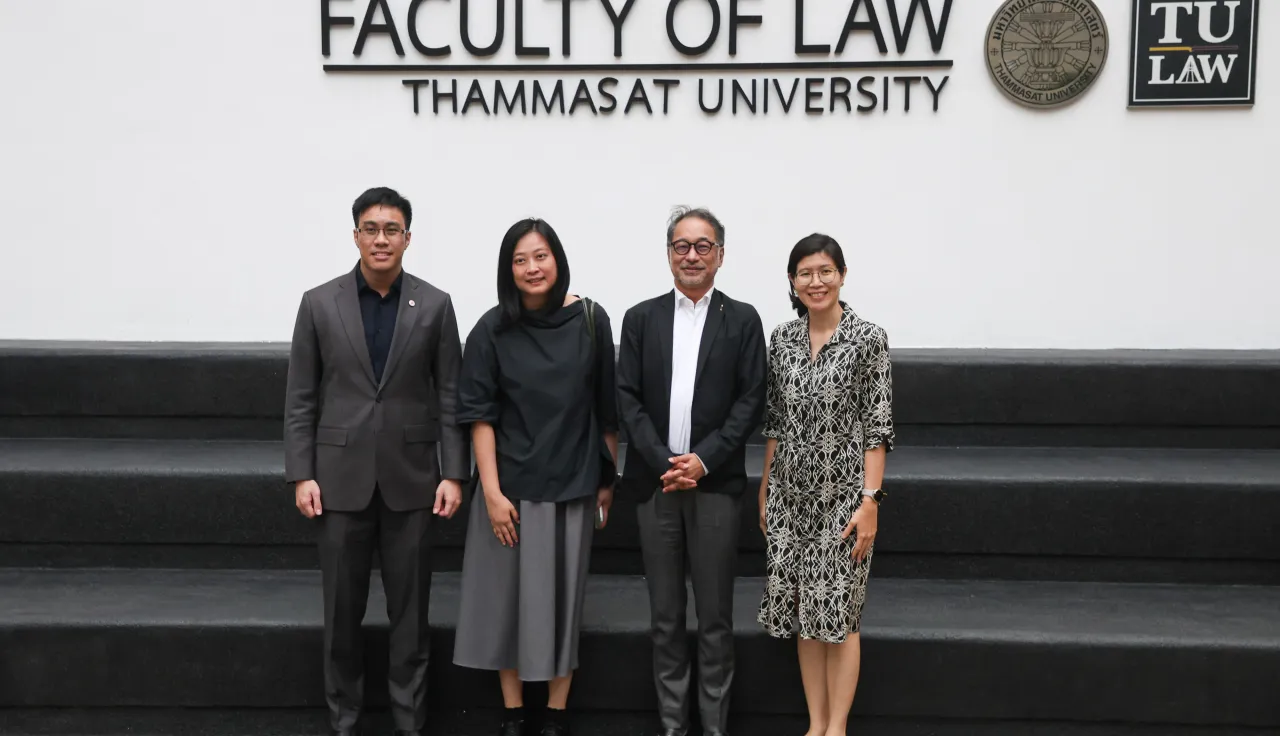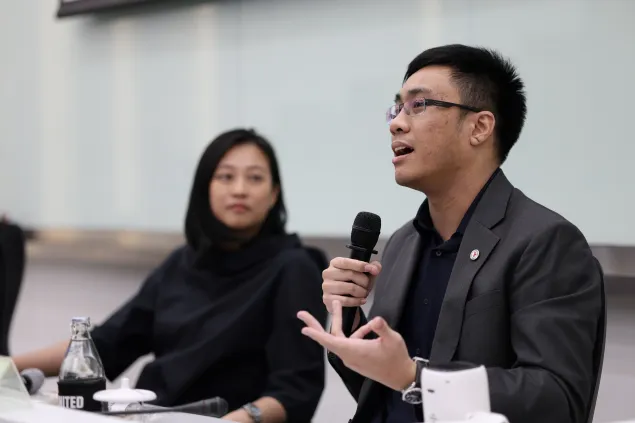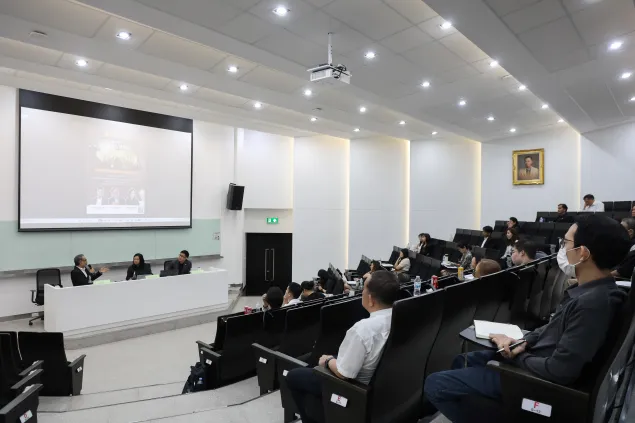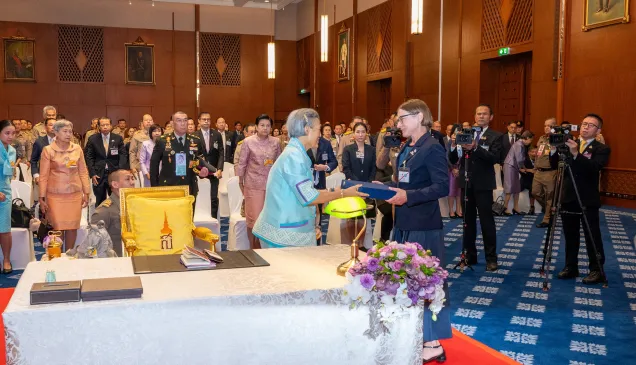Thailand: The ICRC and Thammasat University foster dialogue on IHL’s enduring relevance through film

On 31 October 2025, to commemorate the 80th anniversary of the end of the Second World War, the International Committee of the Red Cross (ICRC) and Thammasat University’s Faculty of Law organized a film screening of the Netflix series, Tokyo Trial, to facilitate public dialogue on international humanitarian law (IHL).
The series revisits the 1946–1948 Tokyo War Crimes Trial not only from a historical perspective, but as a direct precursor to today’s mechanisms that repress war crimes and the vital work of upholding the Geneva Conventions which protect persons who either have not or are no longer participating in hostilities.
The jointly organized movie screenings have become a hallmark of the partnership between Thammasat University’s law faculty and the ICRC’s regional delegation in Bangkok, serving as a crucial platform to raise awareness of IHL in Thailand. Since 2019, these film screenings have harnessed the power of film to make complex legal principles accessible, connecting the fundamental rules of war with the human suffering they are designed to alleviate and prevent. Previous film screenings, Eye in the Sky (2015), All Quiet on the Western Front (2022) and First They Killed My Father (2017), explored diverse facets of modern conflict and its human cost.
The fourth and most recent Tokyo Trial (2017) screening re-examines the legacy of the International Military Tribunal for the Far East, a foundational moment in modern legal history and a precursor to the contemporary framework for the enforcement of IHL.

Close to 80 participants from diverse backgrounds joined the film screening and discussion, both in person and via Facebook Live.
The post-screening panel discussion featured experts from diverse fields, including Thitirat Thipsamritkul, lecturer at Thammasat University’s law faculty, Artch Bunnag, writer, translator and publisher specializing in Japanese literature and culture, and Jirat Jitwarawong, legal advisor at the ICRC’s regional delegation in Bangkok. The discussion provided a unique opportunity to trace the Tokyo War Crimes Trial’s influence in shaping critical concepts like command responsibility and the humanitarian principles that underpin modern international law. The post-war tribunals reflected a burgeoning global commitment to justice and human dignity, principles that later coalesced into today’s key protective instruments, notably the four Geneva Conventions of 12 August 1949 and their Additional Protocols.
The panel’s focus extended beyond historical analysis to the crucial issue of contemporary accountability for IHL violations. The discussion reaffirmed that the pursuit of justice should not be exclusively reliant on international or hybrid institutions but must be robustly supported by national mechanisms to ensure the law is respected. As Jirat Jitwarawong emphasized during the seminar: “Under IHL, all States Parties to the Geneva Conventions, essentially all countries in the world, have the obligation to respect and ensure respect for the Conventions. This means they must not only refrain from violating the law, but they must also establish mechanisms to prevent violations. These mechanisms include, among others: enacting domestic legislation related to serious violations of IHL; ensuring a robust domestic system for effective implementation of IHL obligations; and providing IHL knowledge and training to members of the armed forces and other weapon bearers. While repression mechanisms such as legal trials remain as important, an emphasis on prevention mechanisms can produce a favourable result in preventing the violation from occurring in the first place.”
Dr Lalin Kovudhikulrungsri, associate professor at Thammasat University’s faculty of law, who has been spearheading the film screenings jointly organized by the law faculty and the ICRC, reflected on the success of the effort to humanize IHL: “Our partnership with the ICRC has allowed us to make IHL not merely an abstract set of rules, but something people can see, feel and discuss. Film offers a lens through which legal principles can be understood within their human context.”
The ongoing partnership between the ICRC and Thammasat University is vital to spread awareness of IHL in Thailand. Through this unique platform of film and academic discussion, the partnership effectively translates the complex norms of IHL into accessible and impactful lessons on war, justice and humanity. This approach is essential for fostering a robust public and legal understanding of IHL that ensures greater respect for the law and contributes to efforts to prevent violations in times of armed conflict.

Close to 80 participants from diverse backgrounds joined the film screening and discussion, both in person and via Facebook Live.



